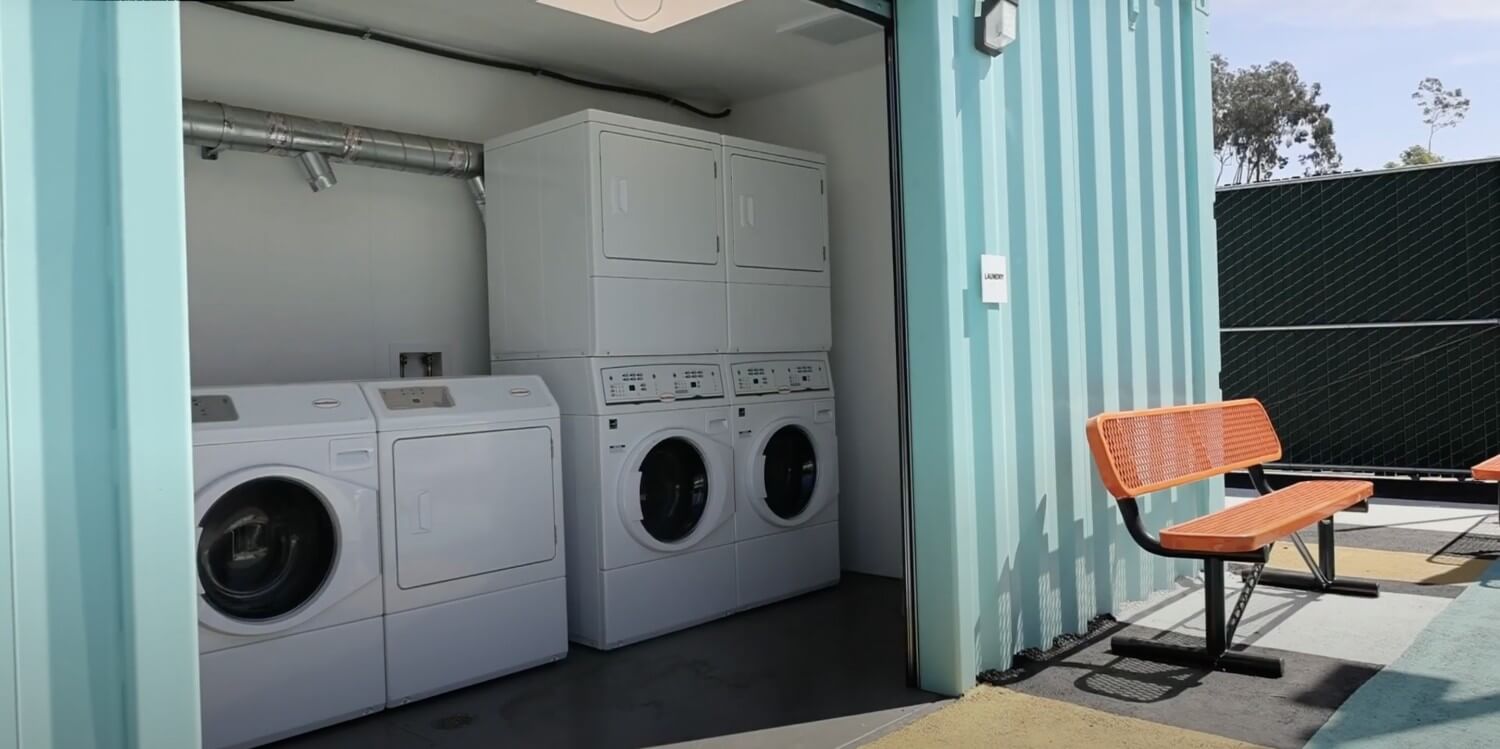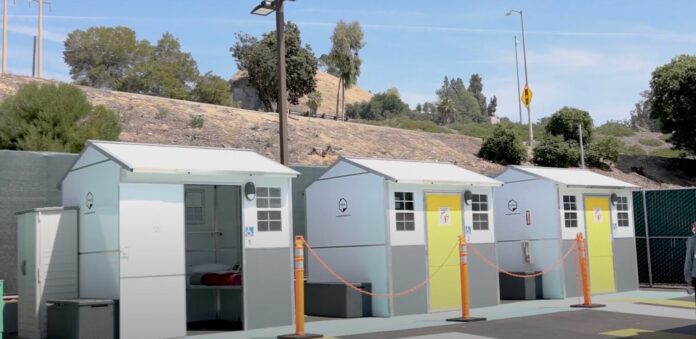Valerie Jayasinghe said she loves her family member, but she worries: he previously slept underneath an overpass in Eagle Rock where he was once beaten up in his tent.
The Eagle Rock Tiny Home Village now provides a roof for her family member, who became a resident just days after the village opened in March. Jayasinghe’s mother, Angelina Banuelos, said that while it is depressing to see their family member there, it is an improvement from a tent.
“We want him to come home,” Banuelos said. “I talk to him mostly every day and tell him to get better, work on himself and see a doctor so he can come home.”
Each tiny home unit is 8 feet by 8 feet, according to an Eagle Rock Neighborhood Council (ERNC) letter. The ERNC voted unanimously to send that letter, which opposes mandatory double occupancy at the tiny homes, to the office of Councilmember Kevin de León.
The ERNC’s homelessness liaison, Jane Demian, said that there is not currently mandatory double occupancy at the village, meaning that residents are not obligated to have a roommate. However, the City Administrative Officer (CAO) recommended mandatory double occupancy at the location to the Los Angeles Homeless Services Authority (LAHSA), according to Demian.
That recommendation, Demian said, comes as Project Roomkey is ending. Project Roomkey is a federal program launched during the COVID-19 pandemic to set up temporary shelters in hotels and motels for unhoused individuals throughout the city. The city has not yet been reimbursed for this program by the Biden administration, although the promise of federal reimbursement remains. Demian said that with Project Roomkey coming to an end, other beds for unhoused people are needed.

While adding beds would increase capacity, Demian said that doubling occupancy could also risk driving off some residents.
“There’s a human element too,” Demian said. “These are human beings with all kinds of complex emotions and experiences. You have to give them some chance to voluntarily agree. If there’s no agreement, and they feel that this is being forced on them, then they are not going to stay.”
Demian said that some residents already choose to have a roommate voluntarily, which couples may want, for example.
The ERNC letter said that reopening or developing Project Roomkey sites would be a better alternative to adding tiny home beds.
“There are people who have mental health illnesses and mental health challenges, who are drug users, who have severe paranoia, who have been traumatized through rape and harassment,” Demian said. “So being in their own room is really important.”
Demian said that if a pair does not mesh well, she does not see how you could force them to stay together — one of them will move out and end up back on the streets.
Jayasinghe said that she tried with her mom to send a mini fridge to her family member who lives there, but found that there was not enough space.
“He could barely put stuff in there,” Jayasinghe said.
Jayasinghe said her family member is a calm person who is well-liked in the village. Still, her family member said that he would not want to share his space with a stranger.
“Right away [I would feel] uncomfortable,” the family member* said.
Nonetheless, Demian said that going from the street to an indoor space is a big deal.
“They have to have a good reason to [go inside],” Demian said. “If somebody kicked them off a location on the street, they would go to another street. Going inside is a very traumatic thing if going inside meant that they were going to be mistreated by the staff or if they were forced to do something that they didn’t want to do.”
De León’s office did not respond for a comment.
Contact Angela Guglielmino at aguglielmino@oxy.edu.
*The identity of the family member has been withheld. For more information on The Occidental’s anonymity policy, visit our Frequently Asked Questions.
![]()































